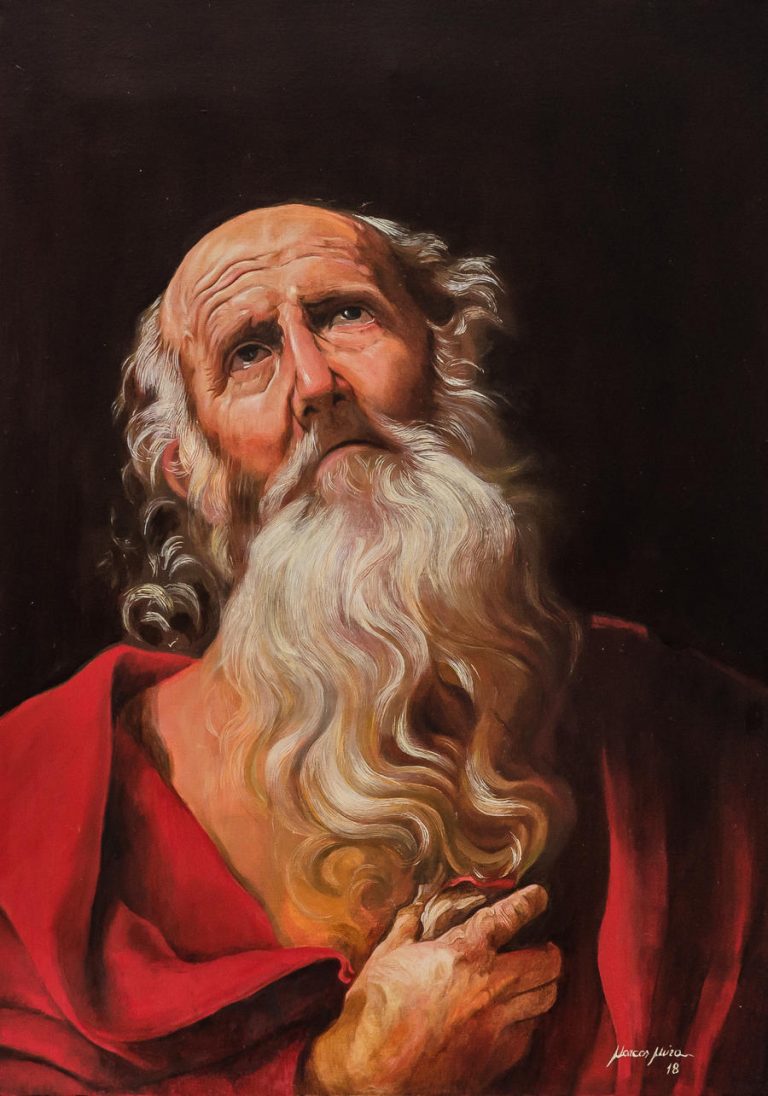Rev. José Mario O. Mandía
jmom.honlam.org
After Jerome’s conversion in 366, he turned his attention to theological and spiritual matters. He initially traveled with Bonosus until 373, when the latter went to an island in the Adriatic to live as a hermit for a time.
Jerome then “perfected his knowledge of Greek, began learning Hebrew (cf. Letter 125, 12), and transcribed codices and Patristic writings (cf. Letter 5, 2). Meditation, solitude and contact with the Word of God helped his Christian sensibility to mature” (Benedict XVI, General Audience, 7 November 2007).
In 370, he stayed in a monastery in Aquileia overseen by Bishop St. Valerian. Many great minds of Christendom were attracted to this monastery. Among the friends that Jerome made here was Rufinis, a monk who was known for his translations of Greek works into Latin. This helped Jerome develop his translation skills. After his stay in Aquileia, Jerome went to Treves, Gaul, where he began to translate books for his own use, thus building up his personal library.
In 374, he reached Antioch. There he fell ill. After recovering a little, he went to live in the desert for four years, but was often not in good health. Jerome preferred the monastic life, but agreed to be ordained a priest with the condition that he will be allowed to live as a monk or a hermit.
For a time, Jerome studied under St Gregory of Nazianzus (cf. Church Fathers 27) in Constantinople. When Gregory left Constantinople in 382, Jerome went to Rome to attend a council and there he met Pope Damasus who asked him to stay in Rome and be his secretary. Even as secretary to the pope, Jerome recommended asceticism to whoever he got to know, especially those who were convinced that everyone is called to be holy.
Being secretary to the Roman Pontiff shielded Jerome from the enemies he made because of his sarcastic wit. But when the Pope died in 382, criticism from pagans and fellow Christians rained on him. False rumors were circulated. So, he decided to leave the Eternal City.
“After the death of Pope Damasus, Jerome left Rome in 385 and went on pilgrimage, first to the Holy Land, a silent witness of Christ’s earthly life, and then to Egypt, the favorite country of numerous monks (cf. Contra Rufinum, 3, 22; Ep. 108, 6-14). In 386 he stopped in Bethlehem, where male and female monasteries were built through the generosity of the noblewoman, Paula, as well as a hospice for pilgrims bound for the Holy Land, ‘remembering Mary and Joseph who had found no room there’ (Letter 108, 14). He stayed in Bethlehem until he died, continuing to do a prodigious amount of work: he commented on the Word of God; he defended the faith, vigorously opposing various heresies; he urged the monks on to perfection; he taught classical and Christian culture to young students; he welcomed with a pastor’s heart pilgrims who were visiting the Holy Land. He died in his cell close to the Grotto of the Nativity on 30 September 419-420” (General Audience, 7 November 2007).
Jerome’s translation of the Bible into Latin is, perhaps, his greatest legacy to Christianity. A thousand years before Martin Luther, he translated the original Hebrew and Greek texts to Latin, thus making it accessible to many Christians who did not know the original languages. With the assistance of collaborators and early Latin versions, Jerome could provide “a better translation: this constitutes the so-called ‘Vulgate’, the ‘official’ text of the Latin Church which was recognized as such by the Council of Trent and which, after the recent revision, continues to be the ‘official’ Latin text of the Church. (General Audience, 7 November 2007).
Saint Jerome, however, also emphasized the importance of the original texts.
“Should an argument on the New Testament arise between Latins because of interpretations of the manuscripts that fail to agree, let us turn to the original, that is, to the Greek text in which the New Testament was written.
“Likewise, with regard to the Old Testament, if there are divergences between the Greek and Latin texts, we should have recourse to the original Hebrew text; thus, we shall be able to find in the streams all that flows from the source” (Letter 106, 2).
Furthermore, he also taught that commentaries should present different opinions “so that the shrewd reader, after reading the different explanations and hearing many opinions – to be accepted or rejected – may judge which is the most reliable, and, like an expert moneychanger, may reject the false coin” (Contra Rufinum 1, 16).
Most of us know that Saint Jerome taught that “ignorance of the Scriptures is ignorance of Christ.” It is not enough, however, just to study the Scriptures. It is important to engage in a conversation with the Word of God. In his Letter (22, 25) Jerome wrote: “Oras: loqueris ad sponsum; legis: ille tibi loquitur” – “You pray: you are talking to the Bridegroom; you read: He is talking to you.”


 Follow
Follow


